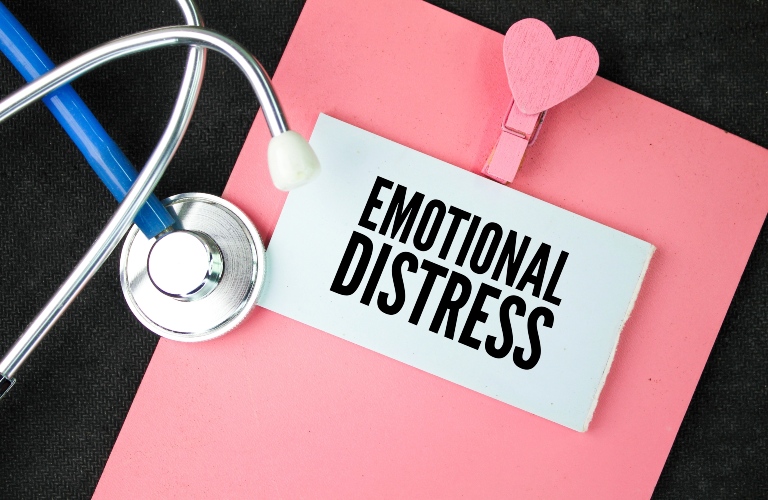Can I Sue for Emotional Distress in Ohio?
Emotional distress can have a profound impact on a person’s life, affecting their mental health, relationships, and overall well-being. In Ohio, individuals who have suffered emotional distress due to another party’s actions may have legal grounds to seek compensation. However, proving emotional distress in court can be challenging, as it requires demonstrating the severity of the harm and the responsible party’s liability.
At Kitrick, Lewis & Harris, our Ohio car accident lawyers know that it is not just the physical injuries and financial costs that affect you. The emotional impact of your injuries or losing a loved one are equally, if not more, traumatic. Schedule a consultation to learn about how we can help.
Understanding Emotional Distress Claims
Emotional distress refers to the psychological suffering caused by a traumatic event or harmful actions. This is quite common in car and other motor vehicle accidents.
A severe accident will likely cause physical injuries which will also lead to psychological suffering. It can lead to numerous serious symptoms, both emotional and physical.
Examples of Emotional Distress
Common examples include, but are not limited to:
- Post-traumatic stress disorder
- Adjustment disorder
- Depression and anxiety
- Suicidal thoughts or attempts
Proving Emotional Distress in Ohio
Successfully suing for emotional distress requires strong evidence to support the claim. Courts typically consider the following factors:
1. Severity of Emotional Distress
The distress must be significant enough to interfere with daily life. Mild frustration or temporary sadness is not sufficient for a legal claim.
2. Medical Documentation
Medical records, therapy notes, and expert testimony from mental health professionals can help establish the extent of emotional distress.
3. Physical Symptoms
Emotional distress can manifest in physical symptoms such as insomnia, headaches, nausea, or panic attacks. Documenting these symptoms strengthens the case.
4. Witness Testimony
Statements from family members, friends, or coworkers who have observed changes in the plaintiff’s behavior can provide additional support.
5. Evidence of Defendant’s Conduct
What the defendant did, whether intentional or negligent, has a significant bearing on connecting what you are going through with what caused the accident.
Compensation for Emotional Distress Claims
If successful, plaintiffs may receive compensation for:
- Past and future medical costs
- Lost income and lost earning capacity
- Property damages related to the motor vehicle accident
- Loss of consortium
- Punitive damages (in certain cases)
The amount of compensation varies based on the severity of distress and the circumstances of the case.
Steps to Take If You Believe You Have a Case

- Consult an Attorney: An experienced personal injury lawyer can assess your case and guide you through the legal process.
- Gather Evidence: Collect medical records, witness statements, and any documentation related to the distress.
- File a Complaint: Your attorney will help draft and file a legal complaint against the responsible party.
- Prepare for Litigation: If the case goes to court, be ready to present evidence and testimony supporting your claim.
Ultimately, your best course of action is to speak with a qualified personal injury attorney in Ohio about your situation. A lawyer can analyze the trauma you have suffered, the accident that caused it, and the compensation you may be owed.
Seek Compensation for Emotional Distress in Ohio
Suing for emotional distress in Ohio is possible, but it requires substantial evidence and legal experience. Plaintiffs must demonstrate the severity of their suffering and the defendant’s liability. If you believe you have a case, consulting a qualified attorney can help you navigate the legal process and seek the compensation you deserve.
Our team at Kitrick, Lewis & Harris are highly experienced personal injury lawyers who represent clients in Columbus and the surrounding areas. Contact us today for a consultation of your case.


